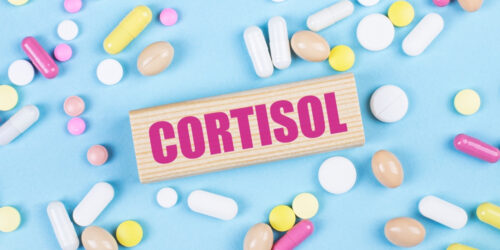The Healing Power of Holistic Nutrition for PTSD: Supporting Mental Health

Table of Contents
In today’s fast-paced world, the impact of post-traumatic stress disorder (PTSD) on mental health is increasingly recognized. Holistic nutrition, with its focus on nourishing the body, mind, and soul, offers a unique approach to supporting mental well-being in individuals coping with PTSD. By integrating wholesome foods, mindful eating practices, and nutritional strategies, holistic nutrition has the potential to provide profound support for individuals navigating the challenges of PTSD. In this article, we’ll explore the transformative power of holistic nutrition for PTSD and how it can play a pivotal role in supporting mental health and overall wellness.
Understanding Holistic Nutrition for PTSD
When we talk about feeding our bodies, it’s not just about stopping that grumbling in our stomachs. It’s much more than that, especially for those facing the tough battle with post-traumatic stress disorder. Think of holistic nutrition as your all-in-one toolkit for health—it’s where your meal is more than food on your plate; it’s the love, care, and intention that goes into selecting what will fuel every part of you, from your muscles to your mood. It’s about embracing foods and habits that respect your entire being, ensuring your mind and body work together in harmony to tackle the rigors of daily life and heal from within.
Definition and Principles
When we talk about holistic nutrition, we’re diving into a way of eating that thinks about the whole person — body, mind, and spirit. It’s not just about the food on your plate, but how your lifestyle influences your health, especially when dealing with something as tough as PTSD. Holistic nutrition is about finding balance and connection between what you eat and how you feel, both inside and out.
Rather than focusing on just calories or specific nutrients, holistic nutrition looks at foods for their healing potential and how they can help the body recover from stress and trauma. It’s built on principles that support your mental health, like eating whole, unprocessed foods, listening to your body’s needs, and understanding that everyone’s journey to health is as unique as they are. This approach is about enriching your entire being so that everything — from your thoughts to your immune system — works harmoniously.
Impact on Mental Health
When we think about the way we eat, it’s not just about filling our stomachs or enjoying flavors. Food plays a major role in how we feel every day, both physically and mentally. For those dealing with intense stress from past experiences, what’s on their plate can become a key ally in the battle for mental stability.
A balanced approach to eating, which is central to holistic nutrition, can change the game when it comes to feelings of anxiety, depression, and stress. By focusing on foods rich in essential vitamins, minerals, and other nutrients, the body gets what it needs to help manage psychological challenges. It’s like giving your brain the right kind of fuel so it can run smoothly, even on the rough roads of life.
Nutritional Strategies for PTSD Support

When tackling the effects of PTSD, every bite and sip can play a crucial part in the healing journey. Nourishing the body with the right foods and adopting mindful eating can create a positive ripple effect on mental well-being. Let’s dive into the essentials of nutrition that could make a significant difference for those living with the challenges of PTSD, including vital nutrients, the benefits of slow and intentional eating, and even the power of natural adaptogens.
Essential Nutrients for Mental Well-being
When we’re talking about healing from the inside out, essential nutrients play a starring role. Just like your car needs the right kind of fuel to run smoothly, your brain needs particular nutrients to function at its best, especially when dealing with something as serious as PTSD. These nutrients can act like tiny superheroes, supporting your mental health, boosting your mood, and helping to manage stress and anxiety.
Eating a diet rich in omega-3 fatty acids is like giving your brain a hug. Found in fish like salmon, these fatty acids help to build cell membranes in the brain and may have a role in managing emotions. Vitamins B6 and B12, along with folate, don’t just keep the gears turning; they’re vital in producing brain chemicals that affect mood and other brain functions. Low levels can leave you feeling down and less equipped to handle stress. You can find these in foods like leafy greens, fruits, and beans, which are all part of a holistic approach to nutrition. And let’s not forget antioxidants—found in brightly colored fruits and veggies—they’re like the body’s personal defense system against damage, which is crucial for a brain that’s healing.
Mindful Eating Practices
When we talk about healing from the inside out, mindful eating takes center stage. It’s not just about what we eat, but how we eat that can make a huge difference in our journey to balance and wellness. By paying close attention to the experience of eating – the tastes, textures, and even the emotions that come with food – we can transform mealtime into a moment of healing and self-awareness.
Mindful eating encourages us to slow down and truly savor our food. It’s like hitting the pause button on life’s fast-forward mode during meals. This practice can help soothe our nervous systems, making it easier to cope with the stress that often comes with PTSD. Imagine sitting down to a calm meal, free from distractions, allowing each bite to be an opportunity to connect with the present moment. Now that’s feeding not just the body, but also the soul.
Adaptogenic Foods and Herbs
When dealing with the stress and anxiety that come with PTSD, nature has provided us with some incredible allies. These are known as adaptogens—natural substances like herbs and roots that can help our bodies handle stress better. They work by stabilizing and balancing various physiological functions, enhancing our ability to cope with external stresses and fight off fatigue.
Among the notable adaptogens, Ashwagandha is a heavyweight champion. It’s been used for centuries to ease anxiety and improve concentration. Another powerhouse is Rhodiola Rosea, which fights fatigue and can improve brain function. Herbs like Holy Basil and foods like mushrooms, particularly reishi and cordyceps, also bring their adaptogenic properties to the table, supporting our body’s stress response and promoting a sense of calm. Integrating these natural soothers into our diets can be a simple yet transformative step toward handling life’s challenges with a bit more grace.
The Gut-Brain Connection and PTSD

Did you know the health of your gut can play a huge role in how you feel upstairs in your mind? That’s right—there’s a super important link between your digestive system and your brain, which can impact mental wellness, especially for someone dealing with the tough stuff, like PTSD. It turns out, a happy gut might lead to a happier you, and that’s worth digging into!
Role of Gut Health in Mental Wellness
You might not think your gut has much to do with your mood, but it’s actually a big player in how your brain feels. This is because your gut and your brain are connected in a super important way – scientists call it the gut-brain axis. Imagine your gut sending signals up to your brain, just like text messages that can either be good news or stress you out.
Your gut is like a garden, full of different bacteria, and just like a garden, you want the good flowers and plants to thrive. When the good bacteria are in charge, they send happy signals to the brain, and this can help calm your mind. But if the bad bacteria take over, it’s like weeds growing wild, and this can lead to feeling down or anxious.
It’s not just about feelings, though. A healthy gut can help strengthen your immune system and even make vitamins that your body needs. Plus, taking care of your gut means you’re taking care of your whole self. For those facing the tough battle with PTSD, making sure your gut is healthy could be a secret weapon for feeling better. It’s not a magic fix, but when it comes to healing, every little bit can make a big difference.
Nutritional Interventions for Gut Health
When it comes to mending the mind, we can’t overlook the power of a healthy gut. The gut-brain axis is a two-way street where your digestive system and your brain talk to each other. Problems in your gut can send signals to your brain, just as a troubled mind can affect your digestion. So, when we’re talking about combatting the tough times that come with PTSD, it’s crucial to start with what’s on your plate.
To support your gut, filling up on fibrous foods like fruits, veggies, and whole grains is key. These foods are the champs of gut health; they provide the roughage your body’s good bacteria need to thrive. Prebiotic foods, such as garlic, onions, and bananas, give that good bacteria a feast. For bonus gut support, incorporating probiotic-rich foods like yogurt, kefir, and sauerkraut can introduce beneficial bacteria that may ease the brain fog and emotional distress. Remember, a happy gut often means a happier mind.
Personalized Nutrition for Mental Resilience

When we talk about bouncing back from the heavy toll of traumatic stress, it’s not a one-size-fits-all kind of deal. Everyone’s body and mind react differently, making personalized nutrition a key player in building mental resilience. This approach takes your unique lifestyle, genetic makeup, and specific needs into account, helping to patch up any nutritional gaps that might be weakening your mental armor. With a plan that’s just for you, you’re setting up a strong, health-filled foundation to face PTSD head-on.
Tailoring Nutrition to Individual Needs
Embarking on a journey toward healing isn’t a one-size-fits-all deal, especially when it comes to what we eat. Just like each person’s experience with PTSD is unique, their nutritional needs are too. It’s crucial to take a look at what specific nutrients someone might be lacking and figure out a plan that fits their body’s demands. You wouldn’t give everyone the same pair of shoes and expect them to run a marathon comfortably, right? The same goes for nutrition.
For instance, some might need more omega-3 fatty acids which are big-time brain boosters, while others may need a push in their vitamin B levels to help their nerves chill out. Working with a health pro who gets the scoop on holistic nutrition can help craft a plan that’s just right. They can peek into your health history, lifestyle, and even preferences to ensure you’re getting a personalized menu that supports healing from the inside out. After all, finding balance in what we eat can turn the tide in the way our mind and body recover from stress.
Addressing Nutrient Deficiencies
When tackling post-traumatic stress disorder, one vital aspect often overlooked is nutrient deficiency. Our bodies and brains require a variety of nutrients to function optimally, and a lack in any one of them can have noticeable effects on mental health. Imagine trying to drive a car without enough fuel; that’s how your brain feels when it’s missing essential vitamins and minerals.
It’s important to identify and rectify these deficiencies, as they play a crucial role in mood regulation, cognitive function, and nerve health. For instance, deficiencies in omega-3 fatty acids, zinc, vitamin D, and B complex vitamins are commonly noted in individuals struggling with mental health disorders. Integrating a diet rich in whole foods like leafy greens, nuts, seeds, and fatty fish can help replenish these vital nutrients and support the brain’s healing process.
Lifestyle Synergy: Holistic Well-being for PTSD

When we talk about recapturing the sense of well-being for those living with PTSD, we must look beyond just food. It’s about the whole lifestyle – how we move, how we rest, and how we cope with stress. This synergy of healthy habits can significantly enhance the healing journey. Let’s dive into how pairing physical activity with stress management techniques can be a game-changer for mental resilience and holistic health.
Physical Activity and Mental Health
When we talk about feeling good from the inside out, we can’t overlook the role of physical activity. It’s like a natural booster for our mood, especially when life gets tough. Moving your body isn’t just about keeping fit; it actually helps to chase away the heavy clouds of stress and worry. Scientists say that when we exercise, our bodies release happy chemicals called endorphins. These are the body’s built-in stress fighters and mood lifters.
And for those working through the tough moments of PTSD, physical activity can be a powerful ally. It’s about more than just breaking a sweat. Exercise gives us a sense of accomplishment and a break from the nagging thoughts that often come with PTSD. When we engage in activities like running, swimming, or even a walk in the park, we’re taking control and creating peaceful moments for our minds. Plus, it sparks a connection between mind and body that is critical for healing on all levels.
Stress Management Techniques
When it comes to healing from trauma, finding ways to manage stress can be just as important as eating the right foods. It’s like having a toolbox where every tool plays a part in fixing something that’s broken. Stress management techniques are valuable tools that can make a huge difference. They help calm the mind and reduce the stress that often comes with PTSD.
One effective method is deep breathing exercises. These exercises can slow down a racing heart and help you feel more in control. Just taking a few deep breaths can signal your body that it’s okay to relax. Another key technique is progressive muscle relaxation. It’s kind of like giving your body a mini-vacation, where you tense and then relax different muscle groups. This helps relieve the physical tension that stress can cause. Practicing these regularly can make a big impact on your mental health.
Nourishing the Mind: Mind-Body Practices

When we talk about healing from the inside out, it’s not just about what’s on your plate—it’s also about what’s in your head and heart. Treating the body as a whole means putting a spotlight on mind-body practices that can lift your mental spirits and strengthen your emotional resilience. Meditation and yoga, for example, are key players in a personalized health playbook, bridging the gap between a calm mind and a nurtured body. Embrace them as part of your daily routine and watch how they transform stress into serenity.
Meditation and Mindfulness
Meditation and mindfulness are like quiet superheroes for the mind. They give people a way to calm down the noise inside their heads and help them focus on the present. Meditation is all about sitting still and letting your thoughts float by like leaves on a river. It’s not about emptying your mind; instead, it’s about being cool with letting your thoughts just be, without letting them drive you crazy.
Mindfulness is a bit like meditation’s best buddy. It’s the art of paying attention on purpose, in the present moment, and without judgment. Whether you’re eating, walking, or just brushing your teeth, mindfulness turns these everyday activities into moments of peace. It’s like giving your brain a mini-vacation every time you remember to do it! Practicing mindfulness can teach you to handle stress better because you learn to notice what’s going on inside you without freaking out.
Yoga for Mental Wellness
Yoga is like a best friend for your mind and body—it’s there to provide comfort, support, and to help you find balance. By combining physical postures, controlled breathing, and meditation, yoga not only stretches and strengthens muscles but also clears the mind and relieves stress. It’s a practice rooted in ancient wisdom that has stood the test of time, offering a wealth of benefits that particularly resonate with persons recovering from traumatic experiences.
For those looking to boost their mental wellness, yoga transforms stress into serenity, fostering a sense of peace even amidst life’s storms. It encourages you to breathe deeply, which sends a message to your nervous system to chill out. This can be incredibly helpful for those carrying the weight of trauma in their daily lives. The mindful focus on movements and breath helps break the cycle of anxiety and fosters a greater connection to the present moment—a sanctuary for a mind haunted by the past.
Conclusion
Harnessing the healing potential of holistic nutrition can offer a lifeline for individuals grappling with the far-reaching impact of PTSD on mental health. By nurturing the body, mind, and spirit, holistic nutrition unveils a path to holistic healing that extends beyond conventional approaches. Through an integration of nutritional wisdom, gut-brain harmony, and mindful living, individuals can embark on a journey to reclaim their mental well-being and rediscover the innate resilience within. The power of holistic nutrition for PTSD is not just about sustenance; it’s about fostering a nourishing foundation for profound mental, emotional, and spiritual balance.
FAQs
Q: What is the holistic approach to treating PTSD?
The holistic approach to treating PTSD involves addressing the physical, emotional, and mental aspects of an individual. This includes psychotherapy, mindfulness practices, support groups, exercise, and complementary therapies like yoga and acupuncture. Holistic treatment aims to foster overall well-being and resilience.
Q: Can nutrition help PTSD?
Yes, nutrition plays a crucial role in managing PTSD. A balanced diet rich in whole foods, antioxidants, omega-3 fatty acids, and vitamins can positively impact mental health. Avoiding excessive caffeine, alcohol, and processed foods is also recommended. Nutritional support can complement traditional therapies for better overall outcomes.
Q: What is holistic nutrition for mental health?
Holistic nutrition for mental health involves nourishing the body and mind with nutrient-dense foods that support overall well-being. This includes a variety of fruits, vegetables, whole grains, lean proteins, and healthy fats. Additionally, considering individual needs and addressing any nutritional deficiencies can contribute to better mental health.
Q: How do you overcome complex PTSD?
Overcoming complex PTSD often requires a multi-faceted approach. This may include psychotherapy, such as cognitive-behavioral therapy (CBT) and dialectical behavior therapy (DBT), support groups, medication, mindfulness techniques, and self-care practices. Building a strong support system and addressing underlying traumas are crucial elements in the recovery process.
Q: What is the best diet for complex PTSD?
While there isn’t a one-size-fits-all diet for complex PTSD, a balanced and nutritious diet is essential. Emphasize whole foods, including fruits, vegetables, whole grains, lean proteins, and healthy fats. Omega-3 fatty acids found in fish, flaxseeds, and walnuts may offer additional benefits for mental health. Consultation with a healthcare professional or nutritionist is recommended to tailor dietary recommendations to individual needs.
Q: What is the best natural supplement for PTSD?
While individual responses vary, some natural supplements may help manage PTSD symptoms. These include omega-3 fatty acids, magnesium, and herbal supplements like valerian root or passionflower for anxiety. However, it’s crucial to consult with a healthcare professional before incorporating supplements, as interactions with medications and individual health conditions need consideration.
Useful resources
- Rewire Trauma Therapy: Using Nutrition to Heal Trauma: This program offered by Rewire Trauma Therapy provides in-depth information on the connection between nutrition, the gut microbiome, and mental health, with a specific focus on supporting recovery from PTSD. You can find an overview of the program here: https://www.wellandgood.com/nutrition-trauma-recovery/
- Stephanie Small: Supplements and Nutrition for Mental Health: Nutritionist Stephanie Small advocates for a holistic approach to mental health, including the use of targeted supplements alongside dietary changes. Her website offers blog posts and resources on the topic, like this one: https://www.rupahealth.com/post/top-nutrient-deficiencies-that-affect-mental-health
- Harvard Health Publishing: Can food help with PTSD? This article from Harvard Health Publishing explores the growing evidence behind the link between diet and PTSD symptoms, providing a concise and authoritative overview for a general audience: https://www.health.harvard.edu/a_to_z/post-traumatic-stress-disorder-a-to-z
- The Journal of Alternative and Complementary Medicine: Nutritional interventions for anxiety, depression, and PTSD: This research paper delves deeper into the scientific evidence for using nutritional interventions to address mental health conditions like PTSD. While it uses more technical language, it offers valuable insights for those seeking a research-backed understanding: https://pubmed.ncbi.nlm.nih.gov/29122259/








I wonder how much work goes into creating a website this excellent and educational. I’ve read a few really good things here, and it’s definitely worth saving for future visits.
I was lucky enough to find this phenomenal website recently, a jewel providing value to subscribers. The clever owner really understands how to crank out relevant content. I’m pumped about this find and hopeful the excellent content keeps coming!
Hi my family member I want to say that this post is awesome nice written and come with approximately all significant infos I would like to peer extra posts like this
Wow amazing blog layout How long have you been blogging for you made blogging look easy The overall look of your web site is magnificent as well as the content
I was recommended this website by my cousin I am not sure whether this post is written by him as nobody else know such detailed about my trouble You are amazing Thanks
I appreciate how this blog promotes self-love and self-care It’s important to prioritize our well-being and your blog reminds me of that
Your posts always provide me with a new perspective and encourage me to look at things differently Thank you for broadening my horizons
Your posts always provide me with a new perspective and encourage me to look at things differently Thank you for broadening my horizons